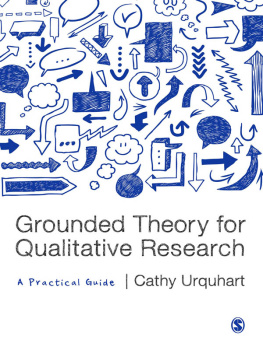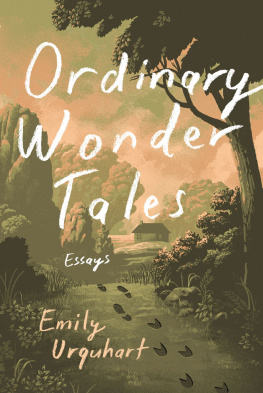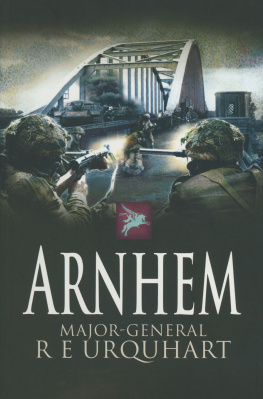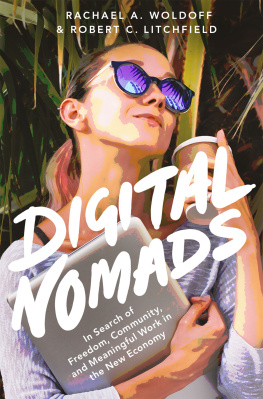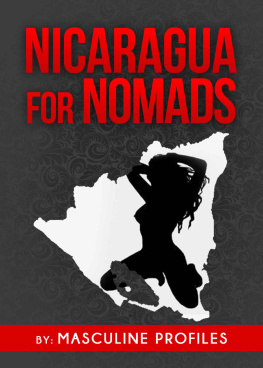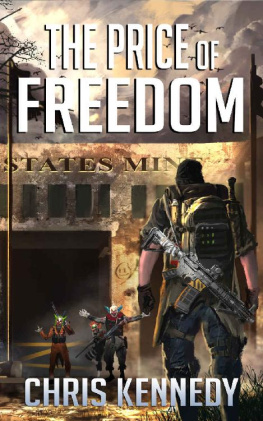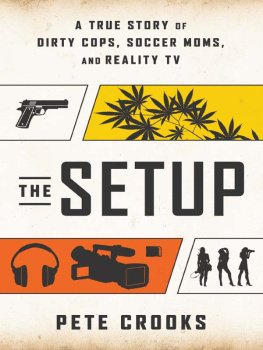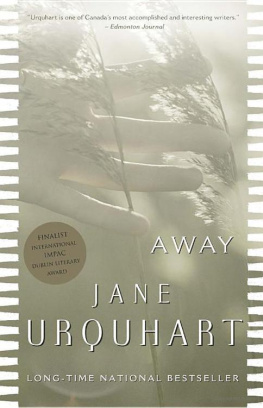Chris Urquhart - Dirty Kids: Chasing Freedom with Americas Nomads
Here you can read online Chris Urquhart - Dirty Kids: Chasing Freedom with Americas Nomads full text of the book (entire story) in english for free. Download pdf and epub, get meaning, cover and reviews about this ebook. year: 2017, publisher: Greystone Books, genre: Home and family. Description of the work, (preface) as well as reviews are available. Best literature library LitArk.com created for fans of good reading and offers a wide selection of genres:
Romance novel
Science fiction
Adventure
Detective
Science
History
Home and family
Prose
Art
Politics
Computer
Non-fiction
Religion
Business
Children
Humor
Choose a favorite category and find really read worthwhile books. Enjoy immersion in the world of imagination, feel the emotions of the characters or learn something new for yourself, make an fascinating discovery.

- Book:Dirty Kids: Chasing Freedom with Americas Nomads
- Author:
- Publisher:Greystone Books
- Genre:
- Year:2017
- Rating:5 / 5
- Favourites:Add to favourites
- Your mark:
- 100
- 1
- 2
- 3
- 4
- 5
Dirty Kids: Chasing Freedom with Americas Nomads: summary, description and annotation
We offer to read an annotation, description, summary or preface (depends on what the author of the book "Dirty Kids: Chasing Freedom with Americas Nomads" wrote himself). If you haven't found the necessary information about the book — write in the comments, we will try to find it.
Dirty Kids: Chasing Freedom with Americas Nomads — read online for free the complete book (whole text) full work
Below is the text of the book, divided by pages. System saving the place of the last page read, allows you to conveniently read the book "Dirty Kids: Chasing Freedom with Americas Nomads" online for free, without having to search again every time where you left off. Put a bookmark, and you can go to the page where you finished reading at any time.
Font size:
Interval:
Bookmark:

Chris Urquhart
Foreword byMICAH WHITE
Photos byKITRA CAHANA

Copyright 2017 by Chris Urquhart
Foreword copyright 2017 by Micah White
17 18 19 20 21 5 4 3 2 1
All rights reserved. No part of this book may be reproduced, stored in a retrieval system or transmitted, in any form or by any means, without the prior written consent of the publisher or a license from The Canadian Copyright Licensing Agency (Access Copyright). For a copyright license, visit www.accesscopyright.ca or call toll free to 1-800-893-5777.
Greystone Books Ltd.
www.greystonebooks.com
Cataloguing data available from Library and Archives Canada
ISBN 978-1-77164-304-7 (pbk.)
ISBN 978-1-77164-306-1 (epub)
Editing by Jennifer Croll
Copyediting by Shirarose Wilensky
Proofreading by Paula Ayer
Cover design by Peter Cocking
Text design by Nayeli Jimenez
Cover and interior photographs by Kitra Cahana
Every reasonable attempt has been made to secure permissions for the images in this book. Information that will allow the publisher to rectify any credit is welcome.
We gratefully acknowledge the support of the Canada Council for the Arts, the British Columbia Arts Council, the Province of British Columbia through the Book Publishing Tax Credit, and the Government of Canada for our publishing activities.

For Kuba.
CONTENTS

by Micah White
FOREWORD

THE SCARCEST AND most precious resource is not oil, gold, or water. It cannot be found in the ground, grown on farms, or manufactured in a laboratory. The thing, if we may call it a thing, most crucial for the survival and prosperity of humanity is not a material substance at all. Instead, the rare resource upon which the fate of our civilization depends is sovereignty, an immaterial attribute that grants the possessor the power to make decisions and dictate how our communities shall live.
Sovereigntylike its sibling, power, and cousin, wealthhas a tendency to accrue to small numbers of people. Even in democracy, a system of government that was intended to fairly distribute sovereignty to the many rather than to the few, we find that the power to decide the rules of social life is not something that many people ever possess. We are often ruled over and rarely the ruler. Few of us have ever experienced the freedom of being sovereign.
The uneven distribution of sovereignty is the fundamental problem plaguing contemporary life. More than income inequality, the inequality of sovereignty is the motivating force behind social unrest. Protests in the streets are a symptom of the fact that the wrong people are enforcing decisions that affect us all. The essence of protest is a call for the redistribution of sovereignty.
Dirty Kids is a thought-provoking, vibrant, and essential memoir for diagnosing our times, because it gives us a fresh, and much-needed, perspective on the pursuit of sovereignty outside established channels.
What is at stake is the question of how to expand sovereignty, how to create real physical spaceswhether they be festivals in forests or gatherings in dilapidated houseswhere the external political powers, the police, and the elected representatives lose their gravitas and a new decision-making power and a new social organization bubbles up from the ground. An important part of the answer is found in the wild cast of characters who animate this book.
One of the themes that recurs throughout Chris Urquharts journey is home. She voluntarily becomes houseless in search of home. There is a close relationship between sovereignty and home: within our homes, and when we feel at home, each of us is a sovereign. (This connection remains codified in the law of Belgium, for example, where police are barred from raiding private homes during the night in pursuit of criminal suspects. From 9 PM to 5 AM, the walls of these homes become a barrier to external power.) Early in her travels, Urquhart experiences this sense of sovereignty outside of a traditional house. She writes, I feel, for a split second, like I am part of something. I feel like Im home. And having experienced a self-governed community for the first time, Urquhart wonders if she should stop taking the antidepressants that have helped her cope with Babylon, the other reality most of us inhabit. Maybe I should go off my meds... If theres any place to do it, I think this would be it, she confides in Kitra, her traveling companion.
The quest for home leads to sincere moments of transcendent joy. But it also results in a debilitating anxiety and paralyzing fear of violence. It is this tension between momentarily finding utopia and uncovering a longer-lasting unease that makes Dirty Kids honest and worth reading. This is not a sanitized picture designed to glorify destitute poverty or blindly celebrate life on the streets. The reader is not forced into becoming an oogle, the derogative term for hanger-on hipsters who try to act tough like travelers but have money or homes and a whole other life. Instead, it is a truthful encounter with the limits of social and political possibility.
In her travels with the nomadic cultures of America, Urquhart reveals an alternate path to sovereigntya sovereignty without power and wealthat the same time as she questions whether it is viable. The travelers that Urquhart introduces us to grant the reader an insight into the precursor communities and experiments in temporary self-governance that profoundly influenced the consensus-based structure of revolutionary social movements like Occupy Wall Street. Those who experienced the autonomous encampments of Occupy will see many similarities in the Rainbow Gatherings, for example. And the radical, free nomadic culture that Dirty Kids documents is likely to continue shaping the form of social protests to come.
Ultimately, the question remains whether sovereignty without political power is possible and desirable. Are the brief moments of finding a joyful communal home in the forest worth the terrible anxiety of financial and physical precariousness? Is it possible to conceive of a permanent sovereignty without power, a lasting ecstasy of belonging that does not come with painful anxiety? The value of Dirty Kids is that it provokes us to think about, and start talking about, these revolutionary questions.
In the final analysis, the only solution to the global challenges facing humanityfrom catastrophic climate change to economic crisiswill be to solve the fundamental underlying problem of the scarcity of sovereignty. We must discover a way to multiply, and redistribute, sovereignty so that more of us have it and better decisions are being made. Reading Dirty Kids gives me hope. Chris Urquharts memoir inspires me to believe that the people might be closer than ever to discovering the path to an abundance of sovereignty and a proliferation of joyous community.
MICAH WHITE, Co-Creator, Occupy, and author of The End of Protest: A New Playbook for Revolution
INTRODUCTION
Font size:
Interval:
Bookmark:
Similar books «Dirty Kids: Chasing Freedom with Americas Nomads»
Look at similar books to Dirty Kids: Chasing Freedom with Americas Nomads. We have selected literature similar in name and meaning in the hope of providing readers with more options to find new, interesting, not yet read works.
Discussion, reviews of the book Dirty Kids: Chasing Freedom with Americas Nomads and just readers' own opinions. Leave your comments, write what you think about the work, its meaning or the main characters. Specify what exactly you liked and what you didn't like, and why you think so.

